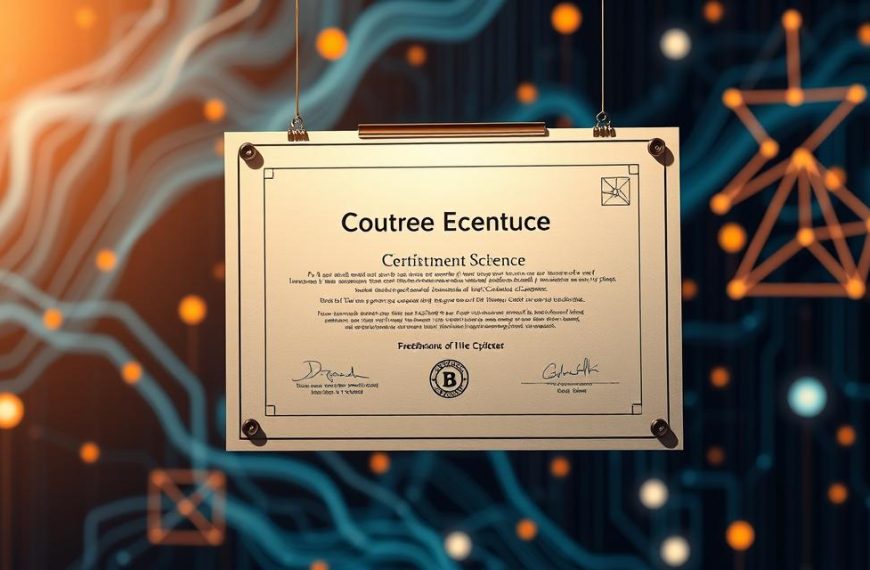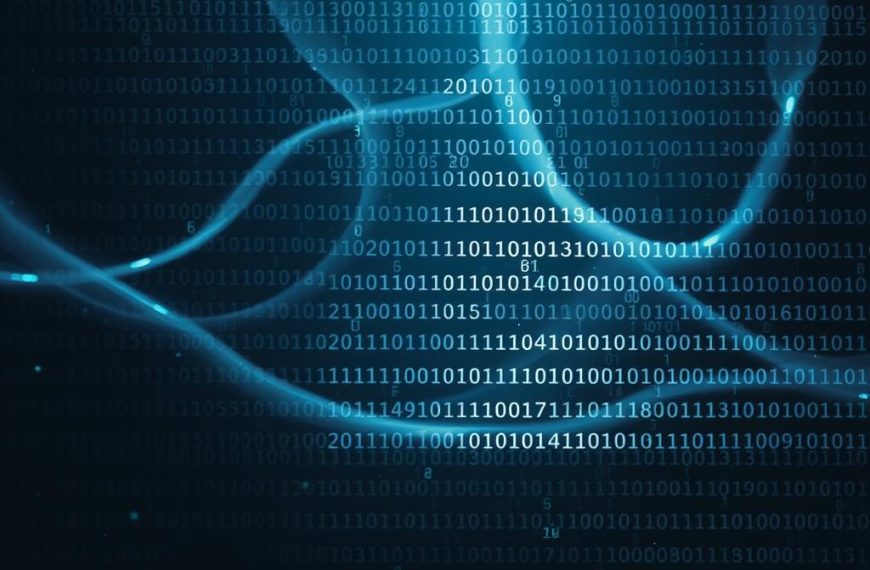Mathematics forms the core of computational thinking in computer science. It’s not just an academic requirement but a powerful tool for solving complex tech challenges. Mathematical foundations are essential for students entering this exciting field.
Computational thinking turns abstract maths into practical programming skills. It requires a strategic approach to problem-solving. Mathematical reasoning becomes crucial for developing innovative tech solutions.
Computer science maths goes beyond simple number crunching. Students explore discrete maths, algorithmic logic, and statistical analysis. These skills open doors to expanding career paths, especially in Ohio’s growing computer science sector.
Mathematical foundations prepare future computer scientists for complex challenges. They’re crucial in software development, data analysis, and emerging tech domains. Maths proficiency is vital for designing algorithms and developing software applications.
See maths as your key to groundbreaking tech innovation. Your journey in computer science maths starts with curiosity and persistence. Embrace numbers and logic as powerful tools for creativity.
The Fundamental Role of Mathematics in Computer Science
Computer science and mathematical reasoning are closely linked. The field requires a deep grasp of computational logic. This logic turns abstract ideas into powerful tech solutions.
Computer science relies on logical thinking to tackle complex problems. Maths skills form the basic language for computer scientists. These skills help them create innovative tech and sophisticated algorithms.
Why Mathematics Underpins Computing
Maths provides the key framework for understanding computer systems. Several maths branches support vital computing functions:
- Discrete mathematics supports algorithm design
- Linear algebra enables data analysis
- Probability helps predict system behaviours
Mathematical Thinking in Programming
Computational logic turns maths concepts into practical programming skills. Problem-solving techniques from maths reasoning help developers in many ways.
These techniques allow them to:
- Develop efficient algorithms
- Optimize code performance
- Create innovative technological solutions
Logic and Computer Operations
Maths reasoning and computer operations are deeply connected. Binary logic, boolean algebra, and computational thinking drive tech innovation. These are direct applications of maths in computing.
| Mathematical Branch | Computer Science Application |
|---|---|
| Discrete Mathematics | Algorithm Design |
| Linear Algebra | Machine Learning |
| Probability | Data Analysis |
Core Mathematical Branches for Computing Professionals
Maths is vital for computer science. It helps pros solve tricky computing problems. Students need strong maths skills to turn ideas into real solutions.
These skills help change abstract thoughts into useful answers. They’re key for anyone studying computer science.
Computing relies on three main maths areas. These provide essential frameworks for problem-solving. Let’s explore each one.
Calculus in Computer Science Applications
Calculus is crucial for understanding system dynamics and optimisation. Machine learning often uses calculus to create predictive models. It also helps analyse complex data changes.
- Optimization of algorithmic performance
- Machine learning model refinement
- Graphical rendering calculations
Linear Algebra in Computer Systems
Linear algebra is key in computer graphics and data compression. It’s also vital for advanced computing methods. Vector and matrix operations allow for complex data handling.
These operations also enable sophisticated visual rendering processes. They’re essential in many computing applications.
| Mathematical Domain | Key Applications |
|---|---|
| Linear Algebra | Computer Graphics Processing |
| Matrix Operations | Data Compression Techniques |
| Vector Calculations | Machine Learning Algorithms |
Discrete Mathematics for Programming
Discrete maths forms the logical base for algorithm design. It’s also crucial for cryptographic systems. This branch focuses on distinct, separable values.
These values are essential for computational thinking. They help create robust and efficient algorithms.
“Mathematics is the language of algorithms, and discrete mathematics speaks fluently in the realm of computing.”
Mastering these maths areas gives computing pros a big advantage. It helps them think flexibly and solve new tech challenges.
Statistics and Probability in Computer Science
Statistics and probability are vital in modern computational thinking. They’ve become crucial for data analysis in today’s tech-driven world. These skills help computer scientists tackle complex problems and create innovative solutions.
Statistical modelling offers powerful tools for understanding intricate systems. It aids in making informed decisions. Computer scientists use these mathematical disciplines to solve real-world challenges.
- Develop intelligent algorithms
- Analyse large datasets
- Create predictive models
- Solve real-world computational challenges
Probabilistic algorithms are essential in various tech domains. Machine learning and AI rely heavily on statistical techniques. These methods help process uncertainty and make intelligent predictions.
“Mathematics is the language of algorithms, and statistics is its most nuanced dialect.” – Anonymous Computer Scientist
Statistics play a key role in several computer science areas. These include cybersecurity, machine learning, and natural language processing.
| Domain | Statistical Application |
|---|---|
| Cybersecurity | Risk assessment and threat prediction |
| Machine Learning | Pattern recognition and predictive modelling |
| Natural Language Processing | Text analysis and semantic understanding |
Statistical principles help turn raw data into meaningful insights. This knowledge drives innovation across multiple tech domains. It empowers computer scientists to make significant advancements in their field.
Strategies for Mastering Computer Science Mathematics
Computer science maths can be daunting. But with clever learning methods, you can conquer complex concepts. Smart techniques can turn tricky maths into manageable tasks.
Online maths resources are brilliant for boosting skills. Study groups can greatly improve your understanding. Research shows they help you remember information better.
Don’t hesitate to ask mentors or teachers for help. Tackling problems early prevents them from becoming major hurdles.
Practical Learning Strategies
Problem-solving is key to mastering computer science maths. Break big challenges into smaller, easier parts. This approach builds confidence and sharpens your skills.
Regular practice with different problem types is crucial. It enhances your analytical thinking. It also prepares you for tougher computational tasks.
Building Mathematical Resilience
Adopt a growth mindset when facing maths challenges. Computer science requires constant learning and flexibility. See difficulties as chances to grow, not as barriers.
This outlook helps you develop the resilience needed. It’s essential for success in this ever-changing field.
FAQ
Do I need to be a mathematical genius to succeed in computer science?
Not at all! Success in computer science hinges on logical thinking and problem-solving abilities. With dedication and practice, anyone can develop the necessary mathematical skills. The right learning approach is key to mastering these skills.
Which mathematical branches are most important for computer science?
Discrete mathematics, linear algebra, calculus, and statistics are crucial for computer science. These areas form the basis for understanding algorithms and computer graphics. They’re also vital for machine learning and data analysis.
How does mathematics relate to programming?
Mathematics is the foundation of computational thinking. Logical reasoning and algorithmic design are rooted in mathematical principles. These skills help programmers create efficient and elegant code solutions.
Can I learn computer science mathematics if I struggled with math in school?
Absolutely! Many successful computer scientists once struggled with maths. The key is to adopt a growth mindset and use diverse learning resources. Online courses, tutorials, and study groups can boost your mathematical understanding.
What role do statistics play in computer science?
Statistics are vital in modern computer science, powering AI and machine learning. They help develop predictive algorithms and understand data patterns. Statistics are crucial for making informed decisions in complex computational environments.
How can I improve my mathematical skills for computer science?
Focus on consistent practice and apply mathematical concepts to real-world problems. Use online platforms and join study groups for collaborative learning. Seek mentorship and approach mathematical challenges with curiosity and persistence.
Are online resources effective for learning computer science mathematics?
Yes! Platforms like Coursera, edX, and Khan Academy offer excellent maths courses for computer science students. These resources provide flexible, interactive learning experiences that complement traditional education.
How important is discrete mathematics in computer science?
Discrete mathematics is fundamental to computer science, underlying areas like algorithm design and cryptography. It provides the logical foundation for understanding computational processes. This branch is crucial for solving complex programming challenges.
What mathematical skills are essential for machine learning?
Machine learning requires strong skills in linear algebra, calculus, and probability theory. These disciplines are critical for understanding neural networks and developing predictive models. They’re also essential for implementing advanced algorithmic techniques.
How can I stay motivated while learning mathematical concepts?
Connect mathematical concepts to real-world applications and celebrate small victories. Join supportive learning communities to stay inspired. Remember that mathematical skills are powerful tools for innovation in computer science.













